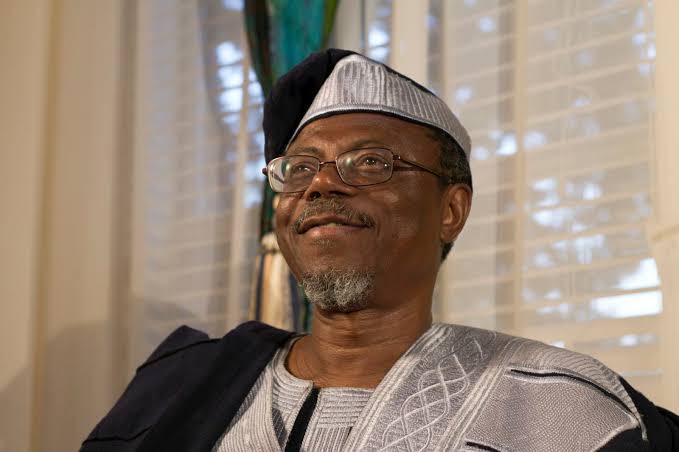As a child, I grew up, in a premise made up of dual bungalows. A cemented play area separated the main bungalow from a smaller bungalow that had six rooms in what used to be referred to as face me, I face you wherein my parents rented a room.
Many an evening, before bedtime, when it was not raining, all the children from their respective rooms in the compound came with their respective ‘apoti’ tagged stools in today’s lingua and a few mats and gathered at the cemented common area between the two bungalows. The gathering was to listen to fascinating stories from elderly residents whether parents or relations of parents who were in Ijebu-Ode from varying adjoining villages as apprentices learning one trade or the other.
The stories provided great philosophical underpinnings of values of public-spiritedness, hard work, contentment, avoidance of avarice, etc. A lot of creativity was involved. The stories were often laced with Yoruba cosmology that included exposure to the world of spirits of all sorts that one finds in the first African novel published in English or Pidgin outside of Africa in 1952 in the UK and in 1953 in the US as Amos Tutuola’s The Palm-Wine Drinkard. Before Tutuola, though, D.O. Fagunwa had, in Yoruba, pioneered the creativity of taking people into the bushes of spirits and demons, including the realms of the dead.
At an early age, children were being socialised into many different worlds. These tales were by the moonlight or in almost total darkness, with there being no electricity but a flicker of light provided by kerosene lamps of all sorts. The lantern was popular in this regard. These were my first conjectures about “ìwín”,”ẹbọra”, ajẹ́, and even Fela Anikulapo Kuti’s adoption of “abami eda” after he was initially known as Omo Iya ajẹ́. These older story-tellers never clarified how “ìwín”, differed from “ẹbọra”. But we knew that ajẹ́ referred to an initiated human female, with supernatural powers, including powers to take life. But in these unisex days, I guess a human male can be an ajẹ́.
Both “ìwín” and “ẹbọra” as supernatural elements we were told were ghosts or ghost-like. They could be encountered in the deep forests or like the dead, only in dreams. We knew of older women suspected to be ajẹ́, but as kids, we could only imagine “ìwín” and “ẹbọra”. After all, they were not of our world. But that was not until OBJ accepted being dubbed “ẹbọra”, Owu. Spirits can be malevolent or benevolent depending on the circumstances and one’s beliefs.
Since Baba Obasanjo is a known “ẹbọra”, then it is possible for living beings to have supernatural capacities that earn them the appellations of “ìwín” and “ẹbọra”. Or a unique superhuman persona like that of Fela could result in the acceptance that such a being is an “abami eda”. Of late, I have been wondering about which would be the correct appellation for Toyin Falola. For all he has achieved and continues to achieve, I asked him which would be the correct description for him or none of the above. Toyin Falola responded with a question: what of all the above?
There is no gainsaying that Prof. Toyin Falola is Africa’s gift to the world of ideas, intellectualism, and advancement of human civilisation. From Ibadan he stormed the World, leaving global footprints as a leading architect of the African intellectual renaissance. In many respects, he blazes the trail as a thought leader whose journey and impact cuts across continents, races, and generations.
A recipient of numerous prestigious honours that affirm his unparalleled all-encompassing contributions to academia. Herein lies the most interesting part of Toyin Falola’s legacies. His fine capacity to achieve such an uncommon feat in academics, yet capable enough to attend to so many other areas of interest at the same period over about seven decades of life. This is something many academics continue to find extremely difficult, if not nearly impossible. He has brought very significant contributions to the study of Humanities, Social Sciences, Literature, and Jurisprudence.
His various efforts over the past decades have reputedly resulted in the authorship, co-authorship, and editing of over 200 books, journals, and academic works on African History, Pan-Africanism, Anglo-African cultures, Latin America and Africa’s interaction with the outside world, to mention just a few. His seminal works, such as Key Events in African History: A Reference Guide, Nationalism and African Intellectuals, as well as Tradition and Change in Africa, have become indispensable in the study of African history and politics. Through many innovative platforms, such as the Toyin Falola Network, Falola Interviews, and Falola Media, he has continued to engage consistently, sharing his ideas, depths, and experiences.
A total of 9 Festschrifts have been written in his honour. Beyond the written word, Professor Falola has been a formidable voice in shaping African studies, delivering keynote lectures across the globe, serving as President of the African Studies Association, and leading landmark academic and policy discussions on Africa’s place in the world. Prof. T. Falola has granted so many interviews to many media platforms not only on the state of African studies and scholarship, but also on critical issues to the society, economy, and politics of Africa and the world at large.
Indeed, Professor Toyin Falola’s towering global stature as a leading global scholar has been well documented. But not much is said about the life-touching things he does in the quiet, intimate corners of humanity. Beyond academics, Prof. Falola’s compassion has often revealed itself in deeply personal and localised ways. On such occasions, he extends not only his voice but his hands and heart to friends in trouble.
Badejo, author of a best-seller on politics in Kenya, was a former Deputy Special Representative of the UN Secretary-General for Somalia and is currently a Legal Practitioner and Consultant at Yintab Strategy Consults as well as the African Annual Conference at the University of Texas at Austin, 2025 Nelson Mandela Distinguished Africanist Awardee





